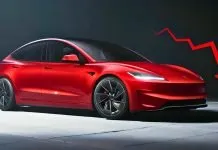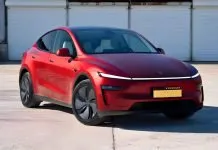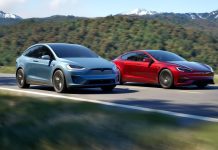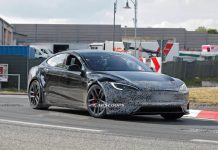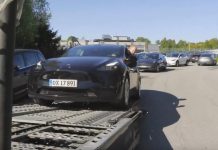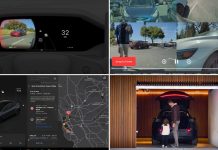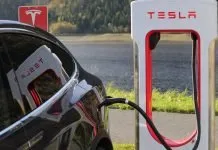Do you know that transportation alone causes 15% of carbon emissions? Yes, that’s the global number. The rise of electric vehicles (EVs) has been one of the most significant technological advancements in recent years, with sales surpassing the 10 million mark worldwide in 2022.
And a tiny hope that it might mean a greener tomorrow.
As countries around the world continue to push towards cleaner and more sustainable transportation, it seems likely that EVs will eventually replace conventional internal combustion engine (ICE) vehicles. However, the growth of EVs has not been without its challenges.
Remember all those supply chain issues and Elon Musk tweeting troubles. And the technological advancements in using hydrogen as a fuel have raised doubts about how long battery-powered EVs will remain the premier mobility solution.
But again, the question lingers…
Could hydrogen be a winner in the future, replacing battery-powered vehicles or defeating EVs? Toyota’s CEO, Kaji Sato, certainly thinks so!
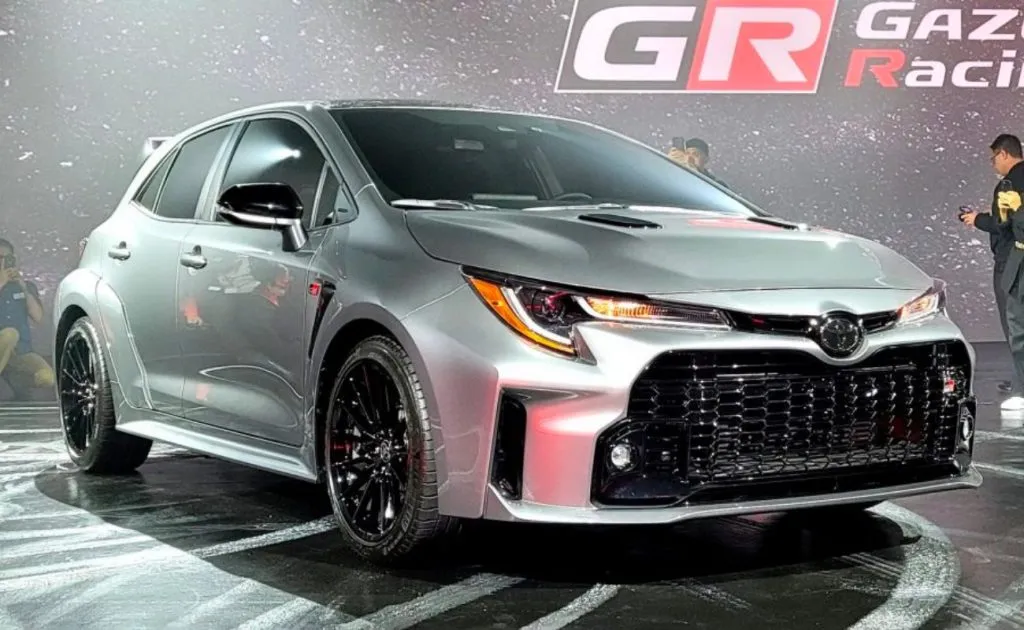
Table of Contents
Toyota CEO on Hydrogen Fuel Cell Technology
Toyota’s new CEO, Koji Sato, has confirmed that the company will continue to focus on hydrogen fuel cell technology despite its recent efforts to produce more compelling all-electric vehicles. Sato, recently came up with the statement during an endurance race at Suzuka Circuit in Japan.
Toyota is working on a V8 hydrogen engine with Yamaha that produces 455 horsepower and an interestingly designed top-mount exhaust that creates amazing high-frequency torque sound.
ROOKIE Racing, the team privately owned by Toyota Chairman, showcased their commitment to exploring new technologies and promoting carbon neutrality in motorsports by completing the grueling 24-hour endurance race with the GR Corolla, equipped with a hydrogen-powered engine. This remarkable achievement demonstrated their dedication to showcasing alternative solutions in the industry.
Toyota’s CEO says the new engine might help solve the problem of reducing emissions as there is no perfect solution so far. He said that what matters most is that the right vehicle is available at the right place and at the right time and Toyota hydrogen vehicles could do that.
Sato’s comments reflect how the company has been developing hydrogen vehicles for over 20 years. Despite the growing popularity of electric vehicles, Toyota has continued to invest heavily in hydrogen fuel cell technology, believing that it has the potential to be a viable alternative to gasoline and diesel-powered vehicles.
With electricity shortages becoming a frequent occurrence and green H2 prices dropping faster than a lead balloon, hydrogen-powered vehicles are starting to look like the belle of the ball. And let’s be honest, with their longer range and shorter refueling times, it might only be a matter of time before they stole the show from those flashy electric vehicles.
Hydrogen Fuel Cells Advantages and Disadvantages
Hydrogen can be a better fuel option for several reasons. Hydrogen is an extremely clean and sustainable fuel source.
Hydrogen Is Cleaner
Unlike fossil fuels, hydrogen does not produce harmful emissions when burned, making it a much more environmentally friendly alternative. Moreover, hydrogen can be produced using a wide range of renewable sources, including wind and solar power, further reducing its carbon footprint.
Energy Density
Hydrogen has a much higher energy density than traditional fossil fuels, meaning that it can store more energy per unit of volume. This makes it an excellent fuel option for vehicles that need to travel long distances, such as aeroplanes or ships.
Functionality
Hydrogen has the potential to be a versatile energy carrier, with applications in various industries, including transportation, energy production, and even space exploration.
Lesser Need to Depend on Limited Materials
Hydrogen is abundantly available leaving us with a lesser need to depend on lithium, nickel, and other limited minerals and materials.
Faster Refueling
hydrogen fueling can be faster than recharging an electric vehicle, which can take several hours. In contrast, filling a hydrogen tank can be done in just a few minutes, making it more convenient for drivers who are on the go.
But the Roadblocks?
Despite these advantages, there are still some challenges to overcome in the widespread adoption of hydrogen as a fuel source. Storing hydrogen is the biggest challenge as hydrogen is highly flammable, and it is difficult to contain it. Moreover, it is not zero emission either. Hydrogen engines do produce some noxious gases that account for 2% of combustion emissions.
Another big challenge is developing a cost-effective and efficient method for producing and distributing hydrogen on a large scale that doesn’t rely on fossil fuels. However, ongoing research and development in this area suggest that hydrogen has the potential to be a significant player in the future of energy and transportation.
What Is Hydrogen Combustion Engine H2?
Hydrogen Combustion Engine H2 is a new type of powertrain from Toyota that utilizes hydrogen as its primary fuel source. According to Toyota, the new version works differently from the fuel cell technology to harness hydrogen power. The Corolla Cross H2 is the latest prototype from the leading automaker with the new HCE (hydrogen combustion engine) from GR Corolla.
Although the Corolla Cross H2 concept car has a battery, it is much smaller than that of an EV. The vehicle is currently undergoing real-world evaluation and is anticipated to undergo winter road condition testing in northern Japan soon.
Toyota GR Corolla H2
The GR Corolla H2 is Toyota’s latest venture in the field of hydrogen-powered vehicles. Based on the Corolla hatchback, the GR Corolla H2 features a hydrogen combustion engine that generates electricity to power its electric motor. This unique combination of a hydrogen engine and combustion system results in a highly efficient and clean vehicle that emits only water vapor.
50 liters of water precisely.
The GR Corolla H2 also boasts impressive performance figures, a 1.6-liter engine turbocharged engine that runs on hydrogen stored in armored fuel tanks. With only 5kg hydrogen, the vehicle can run as much as 300 miles but the best part still is the sound of the eight-into-one exhaust that gives gas muscle cars a run for their money.
Unlike traditional internal combustion engines that use gasoline, this technology burns hydrogen to generate energy to power the vehicle. The process of combustion produces only water vapor as a byproduct, making it a very clean and sustainable alternative to traditional fossil fuels.
The Toyota Hydrogen Combustion Engine is still in the early stages of development, but the company has already achieved promising results. According to Toyota, the engine is capable of generating high levels of power with zero emissions, making it an extremely clean and environmentally friendly technology.
This new engine technology can have significant potential applications in various industries, including transportation, energy production, and even space exploration. Toyota has been testing the engine in a race car, and the results have been impressive, with the car achieving high speeds while emitting zero emissions.
While battery-powered electric vehicles are currently dominating the sustainable transportation space, the Toyota Hydrogen Combustion Engine could have a significant role to play in the future of mobility. It’s an exciting time for the automotive industry, and Toyota’s new hydrogen is a promising technology that could help shape the future.
What to Expect in the Future?
Toyota’s commitment to hydrogen fuel cell technology is reflected in its current lineup of vehicles, which includes the Mirai fuel cell vehicle and the Sora fuel cell bus. Both of these vehicles are powered by Toyota’s advanced fuel cell technology, which produces electricity by combining hydrogen and oxygen to create water vapor.
Sato’s comments suggest that Toyota will continue to invest in hydrogen fuel cell technology, both in terms of production and transport supply chains. He also acknowledged that the widespread adoption of hydrogen as an energy source is dependent on the evolution of the production and transport supply chains. Without this evolution, it will be difficult to expect a significant increase in the use of hydrogen as an energy source.
Toyota’s love for hydrogen fuel cell technology is notable, given the growing popularity of electric vehicles. However, the company believes that hydrogen fuel cell technology has the potential to offer several advantages over electric vehicles, including longer driving ranges and faster refueling times.
It will be interesting to see how Toyota’s investment in hydrogen fuel cell technology plays out in the years to come. Japan’s push to support hydrogen infrastructure plans to have as many as 200,000 hydrogen vehicles on the road by 2025 to become a carbon-neutral automaker.
Hydrogen-powered vehicles, such as the latest Hyundai Xcient trucks and the Mirai, are becoming increasingly popular due to their impressive driving range of more than 800km.
These hydrogen vehicles can be refueled in a matter of minutes, making them more convenient for drivers who are on the go. Furthermore, as the technology becomes more mainstream, the prices of hydrogen-powered vehicles are going down, making them a more accessible option for consumers who want to reduce their carbon footprint while also enjoying the benefits of driving a reliable and efficient vehicle.
Bottomline
The world is at a critical juncture when it comes to mobility and the way we move around. But this also means that there has never been a better time to be a part of this incredible transformation.
Toyota exhausting the liquid hydrogen feasibility and application in its new hydrogen engine designs can prove fatal for the electric vehicle future. One hydrogen fuel-based GR Yaris can be refueled in merely 90 seconds. Take that electric vehicle.
If all goes well, chances are there would be a huge demand for hydrogen vehicles across the globe. However, Elon Musk still thinks of hydrogen cars as the dumbest thing.
But with the rise of electric vehicles, we are seeing a shift towards cleaner, more sustainable transportation that has the potential to revolutionize the way we live, work, and travel. And while there are still challenges to overcome, this is an exciting time to be alive and involved in the world of alternate mobility.
Toyota’s dedication to developing sustainable mobility solutions with hydrogen fuel has been exemplary, and the new Hydrogen Combustion Engine is another example of its innovative spirit. They are one of the earliest players in the hydrogen vehicle industry.


